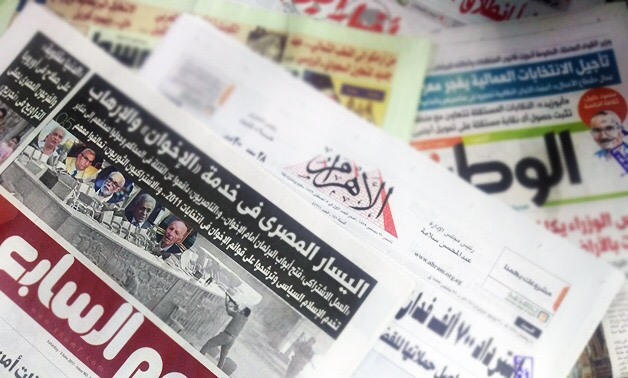
Creative Commons
CAIRO - 7 June, 2017: Egyptian columnists continue to focus on the ongoing Arab-Qatari rift. While some praise the decision to cut diplomatic ties with Qatar, others do not.
Al-Ahram
Makram Mohamed Ahmed wrote, “Qatar digs its own grave.” He asserted that the main reason for cutting diplomatic ties with Qatar by eight countries on Monday is to protect their national security from extremism and terrorist threats. He asserted that Qatar has been proven to protect terrorist groups, provide them with funds, arms and training, and exploits its diplomatic and logistic capabilities by smuggling weapons to these groups.
Makram called on other Arab countries to follow the footsteps of the original eight to pressure the international community to punish all countries that support terrorist groups. He noted that this is a crucial step because militants often seek safe shelter in countries that are not penalized for their support of terrorism.
Columnist Morsi Attallah tackled the Arab-Qatari rift in his opinion piece titled “Isolation of Qatar was a must.” He described the decision of sever ties with Qatar as an “uprising against disgraceful Qatari behavior.”
Attallah praised the decision and called for a complete isolation of the Gulf state until its rulers stop their “insanity.” He maintained that Qatari rulers have plotted against Arab supreme interests throughout their history, by running schemes against Egypt, Yemen, Syria, Libya, Bahrain and Iraq, whilst displaying a suspicious level of political cooperation with Iran, Turkey and Israel.
He stated that Qatar should be declared a pariah state until it reconsiders its regional positions.
Akhbar el-Yom
Galal Dowedar titled his editorial, “The siege of Qatari rulers to avoid their schemes.” He praised the Egyptian and Arab decision to sever ties with Qatar on Monday and highlighted that it was a difficult decision to take since many Qatari people enjoy strong bonds with the Egyptians.
Galal noted that recent Qatari actions have led to destruction and the spread of conflict in all Arab countries and that this decision should not be the last punitive action against Qatar. Egypt, Saudi Arabia, the United Arab Emirates, Bahrain, Yemen, Libya, the Maldives and Mauritius will resort to more measures to ensure Qatar’s compliancy.
Columnist Galal Aref wrote, “Once again . . . it’s over.” Aref discussed the decisive procedures taken by the eight countries against Qatar on Monday. He stated that the Qatari regime has followed strategies of plotting and running schemes against Arab countries such as Libya, Iraq, Yemen, and Syria.
“Over more than 20 years, the Qatari government has betrayed the noble principles that our Qatari brothers are known for. Qatar betrayed Arabism and Islam when Qatar’s rulers decided to allocate Qatar’s resources to serve terror groups,” Aref noted.
Al-Masry Al-Youm
Hamdy Rezk’s editorial was titled “The Emir who lost his mind.” Rezk stated that the resignation of Azmy Beshara, political advisor to the Qatari government and head of the Arab Center for Research and Policy Studies in Doha, is like the “penitence of the devil.” He stressed that such penitence would not be useful at all And, “Evil will remain everywhere.”
Rezk expects that Qatar’s Emir Tamim will renounce direct political action in the coming period following Beshara’s resignation. He believes that Tamim was unduly influenced by the ideas of Beshara, and with Beshara’s departure from the ruling circle Tamim’s reconsideration of many issues will naturally follow.
Mohamed Amin wrote of the recent political turmoil as a “Decision of war.” He asserted that cutting diplomatic ties with Qatar is a “war decision,” which implies many significant consequences. He noted that the Qatari people have not been considered in the decision of the eight countries.
Amin stressed that diplomatic decisions usually come as a final procedure before declaring war against countries. He noted that Iran was now the only open door to Qatari airplanes after the refusal of five Arab airspaces to host them.
Amin said that the decision does not necessarily signify a rift within the Arab body, but instead, an aim to purge it. He also called for freezing Qatar’s membership in the Arab League.
Al-Shorouq
Emad Eddin Hussein revealed details of the diplomatic crisis in his essay titled, “Details of cutting the ties at dawn.” He clarified that the visit paid by Saudi Foreign Minister Adel Al-Jubeir to Cairo on Sunday sought to prepare for the decision taken against Qatar just hours later.
Al- Jubeir met with his Egyptian counterpart Sameh Shoukry and discussed the latest developments in the region including Arab-Qatari future relationships.
Hussein asserted that cutting ties with Qatar was approved by the six Arab countries after earlier Kuwaiti mediation between the Arab countries and Qatar failed. He cited some commentators who have assumed that the timing of the decision was chosen carefully to coincide with U.S. local time and to be the morning surprise that Qatar's Emir Tamim would start his day with.
Youm7
Al-Dandarawi Hawari praised the decision of cutting diplomatic ties with Qatar. He wrote that, "June 5, 2017 marks the setback [Al-Naksa] to the small Gulf state of Qatar, or as international media outlets described, a ‘political earthquake hits Qatar.’"
Hawari predicted that the decision would lead to the political and economic isolation of Doha. He noted that support to the outlawed Muslim Brotherhood brings “bad luck and curses” to anyone who supports it, including Qatar where Brotherhood members have previously sought shelter, as well as Turkey and the United Kingdom.

Comments
Leave a Comment